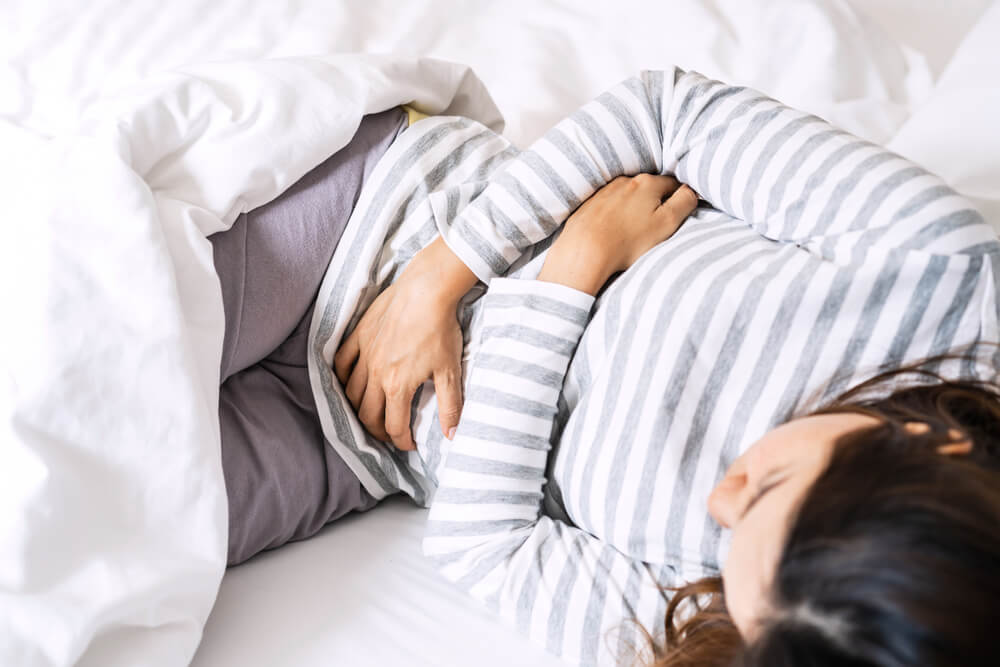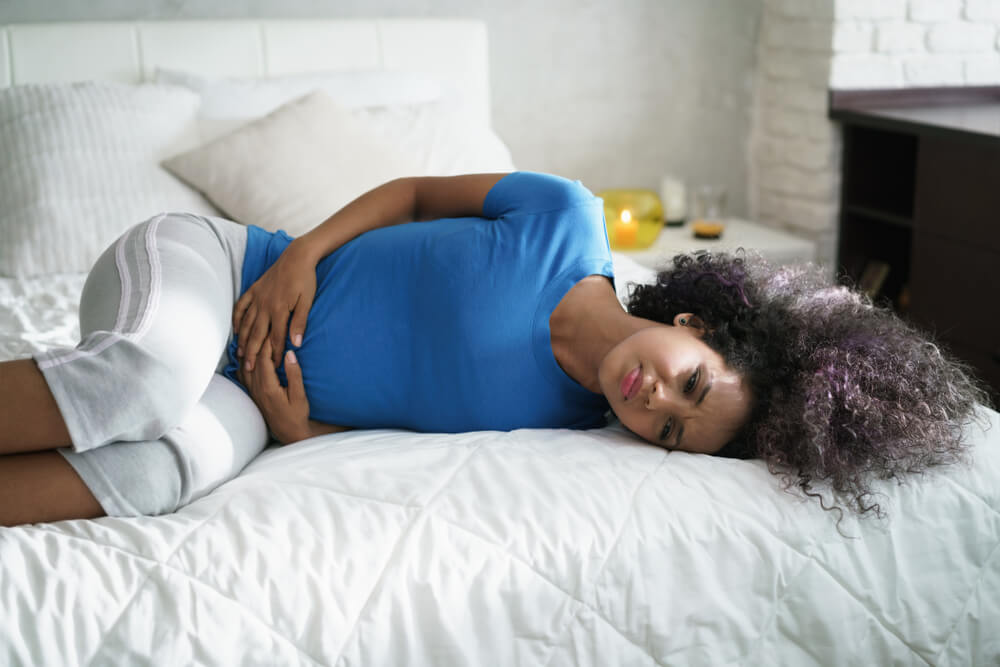Period cramps can be excruciatingly painful, but there are a few ways to stop the discomfort and enjoy your daily activities again. If you are wondering what the best ways to alleviate menstrual cramps include, you have come to the right place. We have searched the internet and asked the best experts in the field to provide you with the top nine ways to get period pain relief. On top of that, you’ll learn about the most common causes of severe period cramps to help you understand how your body works. Before anything else, make sure to talk with a medical professional for expert diagnosis and guidance. If you are searching for the most reliable experts out there, we recommend Dr. White-Videa.
So, how can you get rid of menstrual cramps? Keep scrolling to find out.
What are the Main Reasons for Period Cramps?
While every woman experiences some degree of period cramps, severe pain and other uncomfortable symptoms may require medical attention. Here are some main reasons patients deal with severe period cramps.
Premenstrual Syndrome of PMS
PMS, or premenstrual syndrome, can affect 90 percent of all menstruating patients. If you don’t know already, premenstrual syndrome begins a couple of days before getting a period. PMS will continue into the first or second day of menstruation, and it is accompanied by a wide array of symptoms such as irritability, fatigue, and menstrual cramps.
Premenstrual Dysphoric Disorder or PMDD

Another cause of severe period cramps is PMDD, or premenstrual dysphoric disorder. Since a mere five percent of menstruating patients deal with PMDD, it is less likely to be the culprit for severe period cramps. According to experts, the exact cause of PMDD remains a mystery. However, some doctors suggest that high-stress levels, a family history of depression, and depression cases can lead to PMDD. Usually, symptoms of PMDD can be mistaken for PMS symptoms.
Uterine Fibroids (Benign Growths)
Women with benign growths known as uterine fibroids can also experience severe period cramps. These fibroids are tiny and impossible to notice with the naked eye. However, they are big enough to alter the shape of the uterus. Typically, women of childbearing age will have fibroids, which tend to disappear entirely post-menopause. Patients who are overweight, have a family history of these benign growths, and African American women are at higher risk of fibroids. Besides severe period cramps, fibroids can also cause heavy menstrual periods.
Ovarian Cysts
If you are experiencing severe menstrual cramps, you may have ovarian cysts, harmless sacs of fluid in the ovaries. These cysts usually appear during ovulation. While most women develop at least a single tiny cyst each month (that fades naturally), some patients can have larger and multiple ovarian cysts. Unfortunately, these can cause complications and pain that require medical treatment.
One of the main causes of ovarian cysts includes PCOS or polycystic ovary syndrome. PCOS is a condition where the patient gets multiple small, benign cysts in the ovaries due to a hormone imbalance in the body. As a result, women with PCOS can have severe menstrual cramps, painful menstruations, insulin resistance, and other complications.
Patients with endometriosis, adenomyosis, and pelvic inflammatory disease (or PID) can also experience painful menstruations and cramping.
If you have any further questions or concerns related to your health and well-being, reach out to the best gynecologist in Coral Springs, Florida.
What Helps With Period Cramps?
In most cases, menstrual cramps are entirely normal and expected. However, if they affect your life quality and interfere with your daily activities, you may want to reach out to a medical professional and receive expert help. In some cases, period cramps can signify that something more serious is happening in your body. You can also consider some of the following techniques to aid the pain. The good news is that there are thirteen effective ways to get period pain relief today. Check them out.
Hydrate Properly to Get Rid of Bloating
Make sure to drink enough water to reduce gassiness, bloating, and constipation. When you are bloated, the menstrual cramps are typically worse. For best results, drink hot water to boost blood flow in your body and relax tense muscles.
Drink Herbal Teas to Relieve Muscle Spasms and Inflammation
What helps with period cramps? Drinking delicious herbal tea! Certain herbal teas can help reduce inflammation and cramping. Experts recommend ginger tea, fennel, or chamomile, as these are simple to prepare and tasty. Additionally, herbal teas have many other properties, including increasing sleep quality and easing stress.
Consume Anti-Inflammatory Foods
One of the best ways to get period pain relief is to focus on your diet. Consume plenty of nutrient-dense anti-inflammatory foods like garlic, ginger, tomatoes, and berries to relax the uterus and promote proper blood flow. Eating lots of salmon, walnuts, and green vegetables may also reduce inflammation throughout your body.
Avoid Sugary Treats and Junk Food
While greasy french fries and sugar-filled donuts always sound like a good idea (especially on your period), they can contribute to bloating, excessive gas, and period pain. So, we recommend eliminating these junk food treats from your diet. Instead, choose fresh fruits and unsalted nuts for a healthier snack.
Choose Decaf instead of Regular Coffee
What helps with period cramps? Strong caffeinated coffee doesn’t, that’s for sure. Since caffeine can cause the narrowing of the blood vessels, it can also make cramps extremely painful. Instead, switch to decaf coffee. Better yet, eliminate coffee altogether from your daily routine.
Consider Pain-Relieving Dietary Supplements
Nowadays, you can find plenty of quality dietary supplements for quick-period pain relief. For instance, Vitamin D can help reduce inflammation in the body and alleviate cramping. Additionally, you can supplement with magnesium, vitamin E, and Omega-3. That said, consult with your doctor before self-medicating with any of these supplements.
Focus on Getting in Daily Exercise
Exercise is fantastic for endorphins and muscle relaxation. While exercising may be the last thing you want to do during your period, it can make you feel better physically and mentally. Get some gentle exercise to release the happy hormone, relax muscles, and reduce overall pain. Only fifteen minutes of walking, stretching, or yoga can provide you with many benefits.
Reduce Stress Levels
A healthy amount of stress can make us more productive and motivated, but it can also make cramping worse. Experts recommend implementing calming techniques such as deep breathing, meditation, or yoga to relieve pain and cramping.
Take Medication for Period Pain and Cramps

If all of these techniques do not work for you, you can always try taking over-the-counter or OTC medications for period pain and cramps. Make sure to consult with your doctor first, and only take medications if they are suggested by a professional. Medicines for inflammation, such as ibuprofen, can provide you with fast-acting pain relief by reducing prostaglandin amounts in the body. While over-the-counter medication will not cure menstrual cramps altogether, it will improve your symptoms.
Give Us a Call Today
Period pain and cramping can interfere with your daily activities and decrease life quality of life. Not to mention, the pain and cramping are sometimes unbearable! If you want to maximize your health and find out the reasons for your cramps, reach out to the best gynecologist in Coral Springs, Florida. Book a schedule today to get started.


